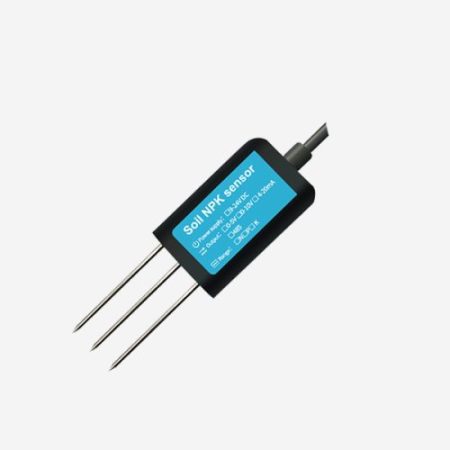Precision agriculture has changed the way we farm. This approach enables farmers to make informed decisions about their crops, thereby reducing environmental impact. The core of precision agriculture is the use of advanced technology, where soil npk sensors have gained prominence.
NPK refers to the essential nutrients nitrogen (N), phosphorus (P), and potassium (K) that are crucial for plant growth and development. Monitoring the levels of these nutrients in the soil is vital for optimizing fertilization practices and ensuring optimal crop health. Traditionally, soil nutrient testing involved labor-intensive and time-consuming processes, but with the advent of soil sensor, farmers can now obtain real-time, accurate data on the nutrient status of their fields.
In precision agriculture we emphasize the use of soil NPK sensors. These sensors offer key benefits that contribute to improved crop management and sustainability. In this article, we will explore the significance of soil NPK sensors and the impact they have on modern agriculture.

The importance of soil NPK sensors
Precision Fertilization
One of the main advantages of using soil NPK sensors is the ability to provide precise information about soil nutrients. By accurately measuring nitrogen, phosphorus and potassium levels at different locations in the field, farmers can customize fertilization strategies. This targeted approach minimizes the risk of over-fertilization, reduces input costs, and prevents nutrient runoff, thereby promoting environmental sustainability.
Real-Time Monitoring
Traditional soil testing methods often involve sending samples to a laboratory and waiting for the results. In contrast, soil NPK sensors enable real-time monitoring, allowing farmers to make immediate decisions based on up-to-date data. This rapid feedback loop is invaluable for adjusting fertilizer applications, identifying nutrient deficiencies, and implementing corrective measures in a timely manner.
Resource Efficiency
By accurately assessing the nutrient status of the soil, farmers can optimize fertilizer and ensure crops are getting the right amount of nutrients at the right time. This method can not only improve the fertilization effect, but also minimize waste and save resources.
Data-Driven Decision Making
Soil NPK sensor generate a wealth of data that can be used to gain insights into soil fertility trends, variability across fields, and the effectiveness of fertilization practices. By leveraging this data, farmers can make informed decisions about crop rotation, soil amendments, and long-term soil health management, ultimately leading to improved productivity and sustainability.
Integration with Precision Agriculture Technologies
Soil NPK sensor can be seamlessly integrated with other precision agriculture technologies such as GPS-guided machinery, variable rate application systems, and crop monitoring tools. This integration enables a holistic approach to crop management, where data from soil sensors can inform and optimize the operation of other agricultural machinery and practices, leading to overall improved efficiency and productivity.
Environmental Stewardship
By precisely managing nutrients using soil NPK sensors, farmers can minimize nutrient leaching. This proactive approach to nutrition management is consistent with environmental management principles and helps to protect the surrounding environment.
Conclusion
In conclusion, the adoption of soil NPK sensors in precision agriculture represents a significant advancement in modern farming practices. The benefits these sensors provide include precise fertilization, real-time monitoring, data-driven, and technology integration. As agriculture continues to evolve to meet growing demands for food production, soil NPK sensors will play a vital role in shaping the future of agriculture.
If you have any questions or concerns, please feel free to leave us a message +86 155 8830 2704 or Email jxiotdz@gmail.com
